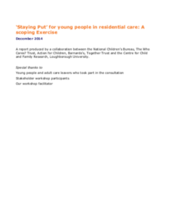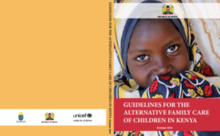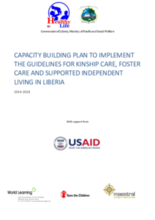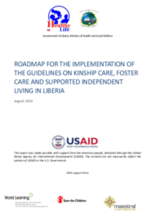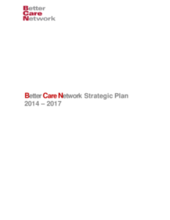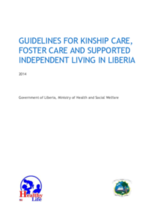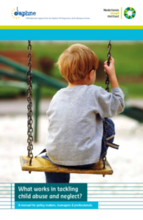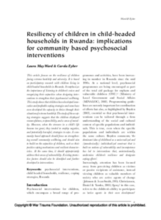Displaying 41 - 50 of 87
This report explores options for young people aging out of residential care (“care leavers”) and the potential challenges and costs of effective implementation of those options.
The initial goal of the development of these guidelines was to seek to regulate Guardianship and Foster Care of children in Kenya.
This capacity building plan supports the implementation of the Liberian Guidelines for Kinship Care, Foster Care and Supported Independent Living.
This “roadmap” document outlines the recommended implementation strategies and activities for strengthening family- and community-based alternative care in Liberia. It accompanies the Guidelines on Kinship Care, Foster Care and Supported Independent Living (the Guidelines) and the Capacity Building Plan to Implement the Guidelines (CBP).
In 2013, Better Care Network (BCN) initiated an important process of developing a new Strategic Plan identifying the main strategic focus for its work over the next four years (2014-2017). The plan is based on an analysis of BCN’s achievements to date, the strategic areas in which BCN can have most impact in the future by working with key actors to strengthen the response to children without adequate family care.
The Guidelines for Kinship Care, Foster Care and Supported Independent Living in Liberia are intended to provide harmonized national guidance for child welfare practitioners in order to improve the quality of family-based alternative care services in Liberia, particularly for children without appropriate care (CWAC).
This important study on foster care practices in India provides important insight into the history, approaches, challenges and opportunities facing the development of foster care services in the country, presenting a picture of foster care practices across nine Indian states.
This manual is the main outcome of the European Commission Daphne III programme, Prevent and Combat Child Abuse: What works? Involving regional exchanges and research from five countries (Germany, Hungary, Portugal, Sweden and the Netherlands), this manual brings together knowledge on what works in tackling child abuse. The manual suggests evidence and practice-based prevention and response strategies against child abuse and neglect, including programs and services that have been shown to be successful in strengthening family care.
This paper investigates the time–space practices of young people caring for their siblings in youthheaded households affected by AIDS in Tanzania and Uganda. Based on qualitative exploratory research with young people heading households, their siblings, NGO workers and community members, the article develops the notion of sibling ‘caringscapes’ to analyse young people’s everyday practices and caring pathways through time and space.
Based on participatory research with children living in child headed households in Rwanda, this article focuses on the resilience of children facing extreme hardship and adversity. While the research focuses on child headed households, this study’s findings can be considered more broadly for interventions for other vulnerable children to support their development of innovative coping strategies.

